
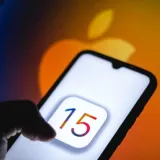
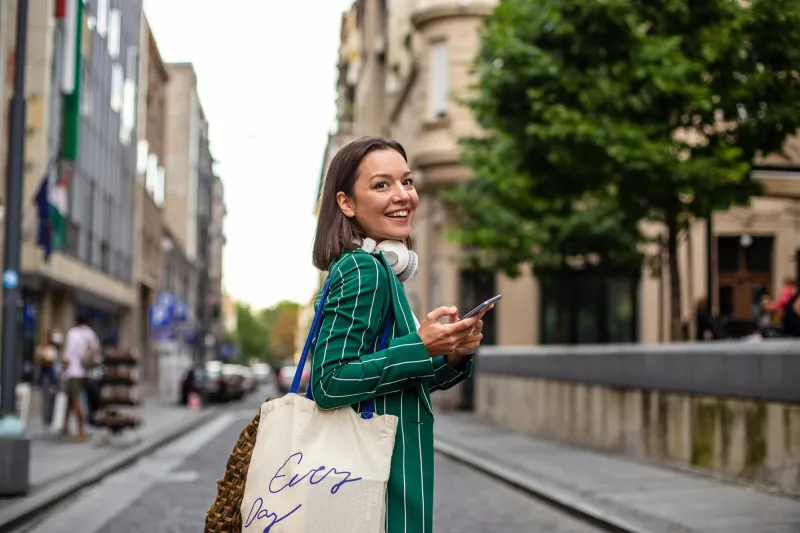
Tech for good – the rise of the ethics calculator
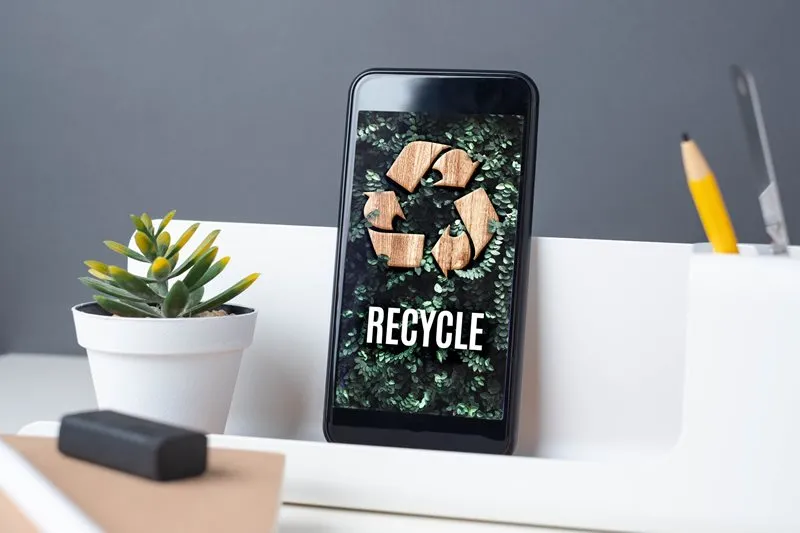
Sustainability has become the buzzword in beauty in recent years. Used to describe environmentally friendly formulations, production practices or packaging methods, today’s savvy consumers are placing less emphasis on the products themselves and giving greater scrutiny to packaging, carbon footprint and the manufacturing process behind them.
Of course, knowing which brands are sustainable and which aren’t can be a minefield. With little regulation on key terminology like natural or organic, and a plethora of certifications, how do consumers know they are making the right choice?
Thankfully, technology is here to help guide them. The Pull Agency’s latest Future of Beauty research shows the concept of using tech within this space is still relatively new, with just 14% claiming to have used an app to help choose a sustainable health & beauty brand. But today there are an assortment of apps designed to help shoppers find the right brands and products for them and they are quickly taking off. Here are a few of the best…
MASTERCARD CARBON CALCULATOR
Mastercard developed their carbon calculator to enable their customers to turn purchases into meaningful actions, giving them new ways to look at environmentally informed spending. Mastercard’s Carbon Calculator has been built in collaboration with Swedish fintech Doconomy and allows customers to view their estimated carbon footprint based on their purchases. Their footprint is then tracked month by month across a variety of spending categories so customers can better understand where they are having the greatest impact.
It’s a great addition to Mastercard’s banking app but it does assume customers only use that account for all purchases and thus might not provide a customer with a total spending assessment. Even so, this app is designed to enable more mindful spending.
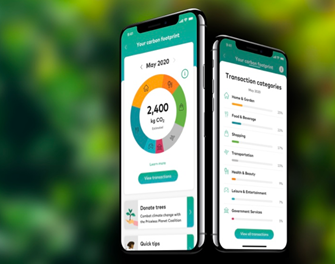
HENKEL FOOTPRINT CALCULATOR
If you don’t have a Mastercard and want to simply understand your carbon footprint and how your actions affect the environment you could use Henkel’s footprint calculator. By answering simple questions about your daily life, you can quickly estimate the amount of CO2 emissions generated within the areas of home life, what you eat, how you travel, as well as holiday and leisure. At the end, you can compare your result with the European and the worldwide average.
Henkel has developed the tool in collaboration with The Wuppertal Institute for Climate, Environment, and Energy. Henkel says, ‘By using this calculator, you can evaluate the “climate friendliness” of your daily life and, at the same time, support current research on sustainable lifestyles conducted by the Wuppertal Institute’.
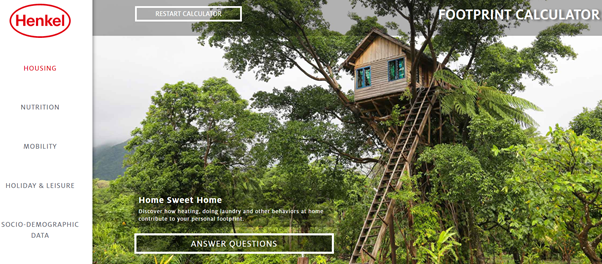
COGO
CoGo is another app that helps you measure and track your ethical living. UK based, this app links to your bank accounts and tracks where you’re spending your money and will helpfully highlight which businesses are less ethical, sustainable, environmentally friendly etc. than others. Within the app you can set up a goal, i.e. ‘I want to focus more on positive climate change’. The app also tracks your carbon footprint in real-time – directly linked to your spending transactions and lifestyle choices. CoGo will recommend ethical alternatives so that you achieve your goal, i.e., walk instead of drive, buy from this business, not that one.
This clever app also recommends thousands of businesses in the UK that care about the same goal you have set up. CoGo also believes in the power of community, actively telling their consumers about carbon reduction projects they can get involved with or support and offering a community group to talk to other like-minded people.
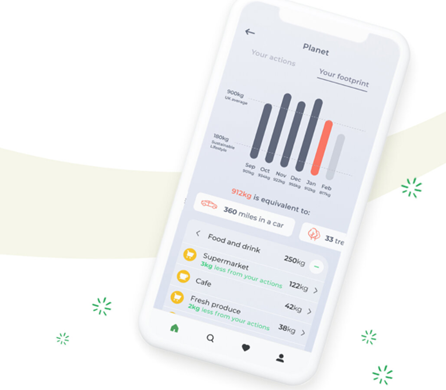
THINK DIRTY
Think Dirty can help you find eco-friendly cosmetics and beauty products. The app helps you learn about potentially toxic ingredients in personal care and makeup products, so you can compare as you shop. Think Dirty rates products on the Dirty Meter, taking into consideration ingredients, certifications, and health impacts. Users can simply scan the product barcode and Think Dirty will give you easy-to-understand info on the product, its ingredients, and shop cleaner options.
The app doesn’t feature all beauty products, as brands have to opt-in at a cost and then be verified. And not all products will be verified, as their site says: ‘only products which meet Think Dirty standards will move forward to step 2 of verification’. It’s not clear what factors drive positive verification or their Dirty Meter ratings. With a plethora of certifications available to brands today, and confusion and lack of regulation around terminology like clean, organic, and natural, is Think Dirty capitalising on this trend without transparency behind their own assessments?
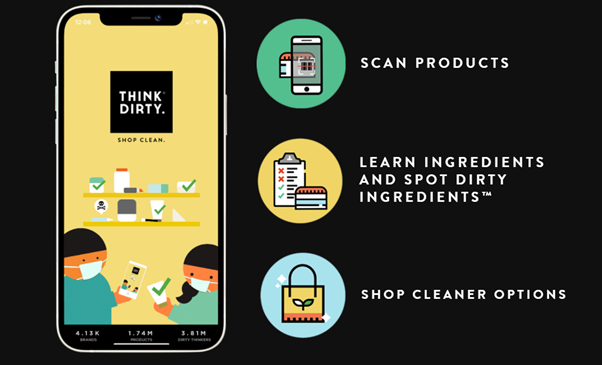
GIKI
Giki, which stands for Get Informed, Know Your Impact, is a social enterprise with a mission is to help people live sustainably. The Giki app is a quick way to find out if a product is eco-friendly. It has a built-in barcode scanner so you can check items while shopping. This app applies to beauty products but also food, with the app awarding badges based on how sustainable a product is. The more badges, the better it is for the environment. The app also gives users information about whether a product is responsibly sourced, is committed to animal welfare, and is packaged with recyclable materials.
Recently GIKI has launched GIKI Zero, a personal guide to calculate, track and reduce your environmental footprint. After users assess their impact, they can look at steps to reduce it. Consumers can choose from 120 steps that suit their lifestyle and budget, enabling everyone to take their first steps on the right path to a low carbon life.
Consumers are looking for more sophisticated metrics and tools for measuring, tracking, and contextualising their ethical actions and the ethics of brands. These tools point to a new era where ethical and sustainability evaluations are integrated into all product and service purchasing decisions.
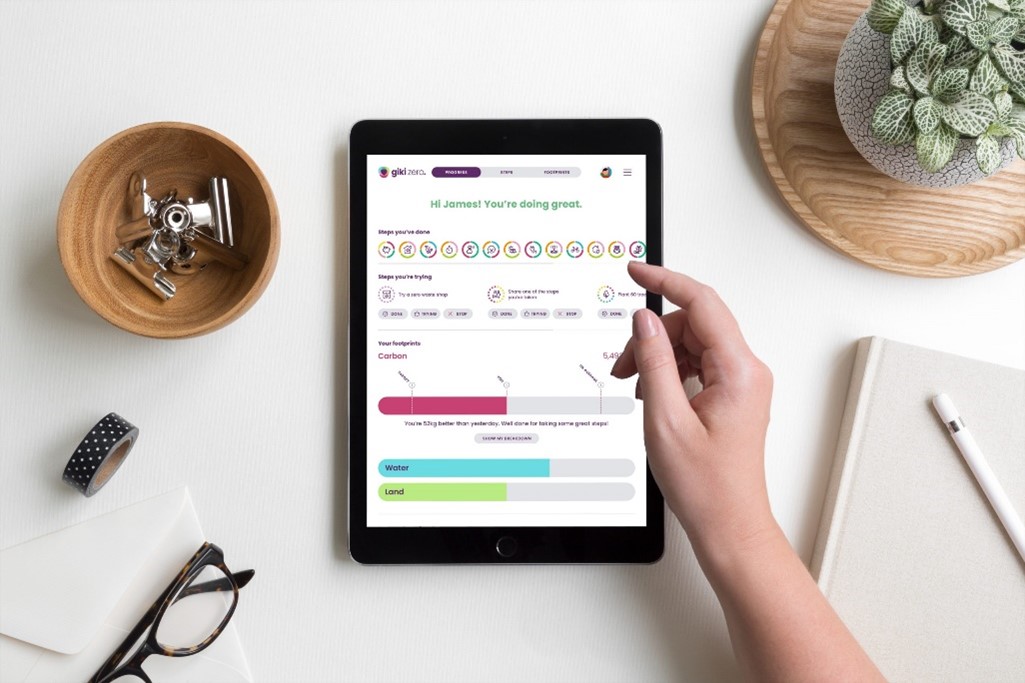
Posted 1 July 2021